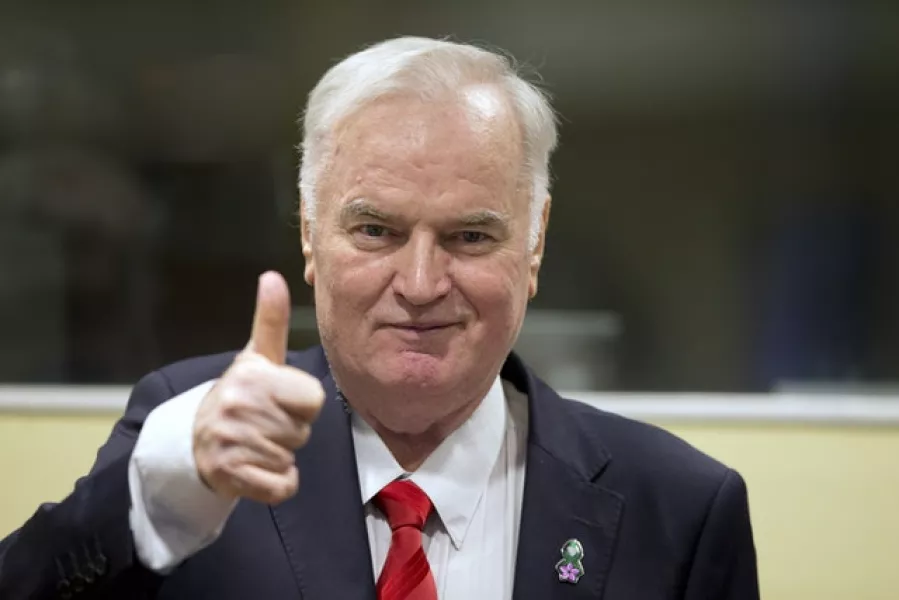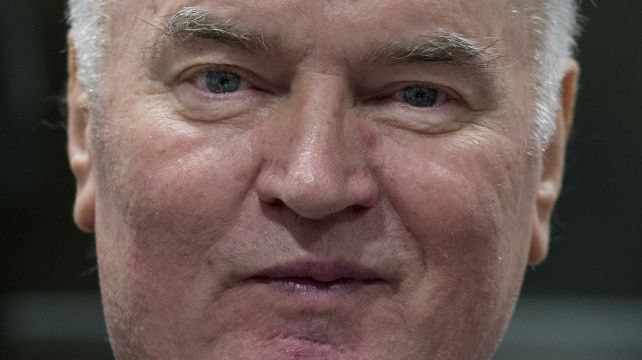The hearing, conducted partly by video conference due to coronavirus measures, proceeded despite lawyer Dragan Ivetic’s objections. Mladic was in court and initially wore a face mask, before pushing it below his chin and then removing it altogether.
Mladic’s lawyers outlined to judges some of the nine grounds of appeal against his convictions and sentence they filed in a written document two years ago, alleging errors of fact and law by the judges who convicted the former general in 2017.
The hearing was repeatedly interrupted by problems with video connections, with presiding judge Prisca Matimba Nyambe overseeing the case via a link from Zambia.

Lawyers for Mladic have repeatedly complained about his ill health and difficulties communicating with him due to coronavirus restrictions, but in a written ruling before the hearing, judges said that the lawyers had not “substantiated that Mladic is unable to communicate, consult with his counsel, and/or understand the essentials of proceedings”.
That did not stop Mr Ivetic raising the matter again.
“I am unable to meaningfully gain instruction from Mr Mladic, nor be assured that he is able to meaningfully participate and follow” the proceedings, Mr Ivetic told the hearing.
He said the two-day hearing should not proceed without an analysis of 77-year-old Mladic’s fitness to participate. At a hearing last month, Mladic’s legal team warned that the former general could be suffering from early stage dementia.
“It is a denial of due process to sentence or proceed criminally against someone who is incompetent to stand trial,” Mr Ivetic said.
Mladic was convicted by a UN war crimes tribunal in 2017 and sentenced to life imprisonment for masterminding crimes by Bosnian Serb forces throughout the war that left 100,000 dead, an overwhelming majority of them Bosnian Muslim civilians. He is asking the UN appeals mechanism to overturn all his convictions and acquit him, or order a retrial.
Prosecutors, meanwhile, are appealing against Mladic’s acquittal on a second count of genocide related to “ethnic cleansing” campaigns to drive Muslims and Croats out of territory claimed by Serbs in Bosnia.
Mladic evaded justice for nearly 16 years after his indictment in July 1995, until he was arrested in Serbia in May 2011 and transferred to The Hague to stand trial.
His former political master, Radovan Karadzic, was also convicted of crimes including genocide for overseeing atrocities by Bosnian Serb forces during the war. His appeal was rejected almost in its entirety and judges raised his sentence from 40 years to life imprisonment.







